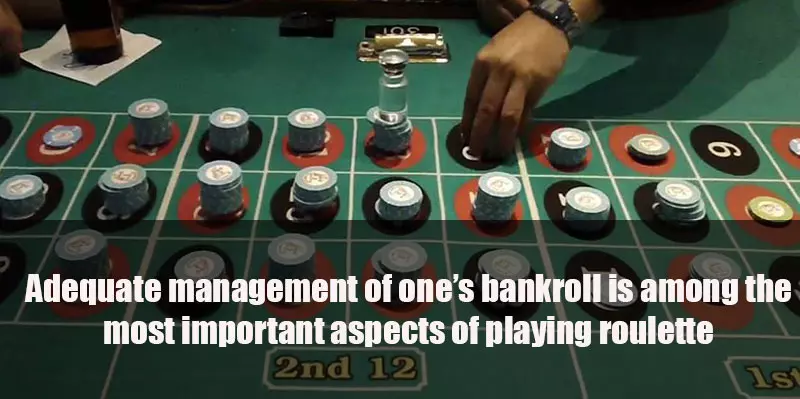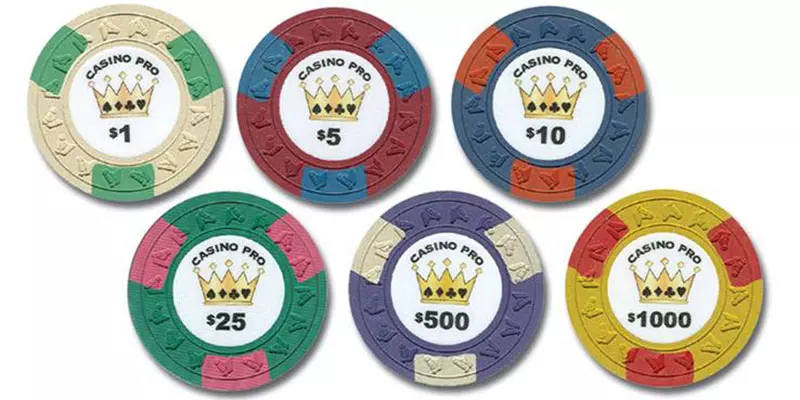Roulette has earned the reputation of one of the most popular casino games of all time, and it should come as no surprise that it continues to be one of the most played games in online and land-based casinos. In spite of the fact that several factors contribute to its immense popularity, the primary reason why it continues to make a splash is that the rules of the game are relatively easy to learn, which renders it suitable for both seasoned and inexperienced players. In addition, players are presented with a great number of betting options to choose from. Besides, playing roulette is all the more exciting due to the game’s dynamics and fast pace, which rings true, especially when playing in brick-and-mortar casinos because occasionally, the roulette tables are the most effervescent.
That being said, many lovers of the game, experienced ones included, tend to dive into their betting session with a good understanding of its rules, but what they often forget is that proper bankroll management is just as essential.
No matter if you will approach the game of roulette simply because of the entertainment it brings or because you want to make some profit, you should make sure that you have a proper bankroll management plan before you get down to playing.
So, if you want to have the full piece of mind that you will not end up with depleted bankroll, it will be better if you read up on what roulette bankroll management is all about.
Why is Money Management Important?
Adequate management of one’s bankroll is among the most important aspects of playing roulette. If you fail to take care of your bankroll properly, there is a good chance you will leave the roulette table empty-handed without turning any profit whatsoever. And after all, winning is the goal of every player, experienced or not.
Deciding on a suitable plan of action in advance is essential as it instills a certain degree of discipline in players and prevents them from making rash decisions. It happens that players experience a longer losing streak and this comes about more often than some gambling aficionados might think. This might cause them to start chasing their losses by placing bigger and bigger wagers until they eventually deplete their entire bankrolls and are left with no money to bet with.
Then again, those who have learned to manage their funds properly often succeed in reducing their losses, maximising their wins and thus, generating a consistent profit while at the roulette table. Moreover, proper money management enables players to maintain their composure even when they sustain several losses in a row, allowing them to make informed decisions regarding their next bets.

Key Aspects Of Money Management
Money management has to do with hard work and commitment. It also requires a good deal of discipline and preparation. Following the few basic rules listed below will enable players to maintain their self-control while at the roulette table and prevent them from exhausting their bankrolls.
Determining the Size of Your Bankroll
The first thing players need to do is determine the size of their monthly bankroll or the amount of money they have set aside for playing roulette each month. In order to determine your bankroll size, you need to examine carefully your expenses and decide on the amount of money you are comfortable with losing per month. In other words, your roulette bankroll consists of funds you do not need to live with.
Once you have decided how much you can comfortably lose per month, you need to divide the overall sum into smaller portions for each betting session. For example, if you are comfortable with losing £1,000 and plan on visiting the casino four times this month, your bankroll per visit should amount to no more than £250. The same applies if you intend to play online – you should not deposit more than a quarter of your monthly bankroll to spend on a single betting session. If you finish the month on profit, you are recommended to cash out half of your net profit and add the remaining half to the bankroll for the following month.
Players should also distinguish between their session stake, which is the amount of money they are enabled to spend during one sit-down at the roulette table and the daily stake, which is the amount players are permitted to use within several sessions that take place during a single day.
What is worth noting is that it is up to you to determine the duration of the sessions as you might want to play for three hours while sometimes, just for an hour. Roulette mavens can also settle on their weekly stake. Naturally, when you put all these sums together, you should get the amount of your monthly bankroll.

If roulette players want to make sure that they will have better control over their funds, they should consider setting an upper limit on the spread of units they can wager during shorter periods of time.
Once they have decided on the amount they will use for gambling purposes during that month, players should consider dividing it further into several smaller budgets following the above-mentioned principle. The same refers to the time casino enthusiasts will spend at the roulette table. Instead of playing for several hours without interruption, roulette lovers should consider taking smaller breaks between the different sessions so as to ensure that they will not end up asleep at the wheel.
On that note, it is important to mention that you should keep your betting money separate from the funds you have allocated for bills, rent, food, and other necessary expenses. One of the best ways to ensure that you will not spend money you need for other purposes is to keep a separate bankroll for gambling. In this way, you will not feel tempted to keep on taking money out of your bank account. An essential detail gambling enthusiasts should not forget is that roulette is a negative expectation game, which means that they will need to fuel their gambling bankroll rather often.
Deciding on Your Base Betting Unit
Once you have determined the size of your bankroll per betting session, you need to decide on the size of your base betting unit or the amount of money you will put on a stake with each wager. The size of the base betting unit correlates to the size of your bankroll.
You can choose any base betting unit that suits you. However, experienced roulette players recommend that the base betting unit should range between 2% and 5% of the overall bankroll for a given betting session. For example, if you have allocated the sum of £250 for a single betting session, it will be best to play with a base betting unit of £5 or 2% of your total bankroll.
Yet, if you think that roulette is your scene, but you have never tried your hand at the game, you might be more comfortable with going for a smaller base betting unit. The same applies to casino enthusiasts who are somewhat faint-hearted and do not feel like putting too much of their funds on a single stake.

Something vital casino enthusiasts should pay attention to is that if they settle on a small base betting unit while their bankroll is larger, there are almost no chances of getting a devastating loss.
As you can see, some planning will be needed before you get down to playing roulette, but this will save you much hassle later. While making up your mind about the cut-off point of your wagers, you should not forget to pay attention to the table limits of the chosen roulette variation. If you prefer playing it safe, but the roulette table is designed with high-rollers in mind, this might mean that you may need to find another game because of the higher starting point of stakes.
Choosing a Roulette Variation with Better Odds
Each casino game has a built-in advantage that tips the scales in favour of the house, and roulette is hardly an exception. This built-in advantage is called house edge, and if casino enthusiasts want to enhance their chances to bag heftier wins, they are advised to opt for the roulette variants in which the house advantage is the lowest.
Generally, we can distinguish between two major variations of the game. American roulette has a higher built-in house advantage of 5.26% since the wheel has a single-zero and a double-zero pocket. Because of the lack of a double-zero pocket, European and French roulette variations are much more advantageous for players as the house edge stands at 2.70%.
While looking for a roulette table to play at, gambling aficionados are also advised to check out if the La Partage and En Prison rules are offered. The availability of these two special rules will work to the advantage of roulette mavens due to the fact that when they are in place, the house edge is trimmed down to 1.35%. Opting for such roulette variants is a wiser move simply because players’ bankroll is likely to last longer.
Fortunately, considering the enormous variety of roulette variants virtual players are given a choice from, they are unlikely to end up struggling to find a game where these rules are available.
| European Roulette Odds and Probabilities | |||
|---|---|---|---|
| Bet Type | Bet Payout | Bet Probability | House Edge |
| Straight | 35/1 | 2.70% | 2.70% |
| Split | 17/1 | 5.41% | 2.70% |
| Street | 11/1 | 8.11% | 2.70% |
| Square or Corner | 8/1 | 10.81% | 2.70% |
| Six Line | 5/1 | 16.2% | 2.70% |
| Column | 2/1 | 32.4% | 2.70% |
| Dozen | 2/1 | 32.4% | 2.70% |
| Red / Black | 1/1 | 48.64% | 2.70% |
| Odd / Even | 1/1 | 48.64% | 2.70% |
| High / Low | 1/1 | 48.64% | 2.70% |
| American Roulette Odds and Probabilities | |||
|---|---|---|---|
| Bet Type | Bet Payout | Bet Probability | House Edge |
| Straight | 35/1 | 2.63% | 5.26% |
| Split | 17/1 | 5.26% | 5.26% |
| Street | 11/1 | 7.89% | 5.26% |
| Square or Corner | 8/1 | 10.53% | 5.26% |
| Five Line | 6/1 | 13.16% | 7.89% |
| Six Line | 5/1 | 15.79% | 5.26% |
| Column | 2/1 | 31.58% | 5.26% |
| Dozen | 2/1 | 31.58% | 5.26% |
| Red / Black | 1/1 | 46.37% | 5.26% |
| Odd / Even | 1/1 | 46.37% | 5.26% |
| High / Low | 1/1 | 46.37% | 5.26% |
| French Roulette Odds and Probabilities * | |||
|---|---|---|---|
| Bet Type | Bet Payout | Bet Probability | House Edge |
| Straight | 35/1 | 2.70% | 2.70% |
| Split | 17/1 | 5.41% | 2.70% |
| Street | 11/1 | 8.11% | 2.70% |
| Trio (0,1,2 / 0,2,3) | 11/1 | 8.11% | 2.70% |
| Four-Number (0,1,2,3) | 8/1 | 10.81% | 2.70% |
| Square or Corner | 8/1 | 10.81% | 2.70% |
| Six Line | 5/1 | 16.2% | 2.70% |
| Column | 2/1 | 32.4% | 2.70% |
| Dozen (P12, M12, D12) | 2/1 | 32.4% | 2.70% |
| Red / Black | 1/1 | 48.64% | 2.70% |
| Impair (Odd) / Pair (Even) | 1/1 | 48.64% | 2.70% |
| Manque (Low) / Passe (High) | 1/1 | 48.64% | 2.70% |
* Single-zero tables where the La Partage rule applies are considered the best option since this rule reduces the house edge on even-money bets even further to 1.35%.
Setting Up a Loss Limit
Determining a loss limit for yourself is of crucial importance as it prevents you from chasing your losses and placing reckless bets whenever you experience longer losing streaks. Unfortunately, this is bound to happen every once in a while. Please note that you are expected to set a loss limit for yourself in advance prior to joining the roulette table or placing your first bet online because, in this way, you will be less likely to make rushed decisions.
Players can choose any figure they are comfortable with. This can be 20%, 30%, or 40% per betting session. Please note that in roulette the loss limit per betting session should by no means exceed 50%. This limit protects players and enables them to retreat prior to depleting their bankrolls.
When players reach the loss limit they have set for themselves, they are required to quit the game as difficult as this might be on some occasions. Experts recommend you to end the session if the first four spins are losing ones. More conservative players can retreat after losing on the first three spins.
Betting on the Action Numbers
Roulette Money Management
Gambling Discipline
ROI and Return to Player
Best Casinos to Play Roulette
Then again, if a losing streak of four consecutive spins occurs after you have already experienced a hot run, you are not necessarily required to quit the game since your loss limit protects you. In this case, you can either sit out on one or two spins or depart from the table after five straight losses.
It is beyond important to make sure that you will not go for another betting session immediately after you give up on the current one. The reason why gambling enthusiasts should make sure that their next betting session will not start mere minutes after the previous one is that they will be less inclined to try to compensate for the losses they have already sustained.
Going for another session right away might not be an issue if the funds you have at your disposal are inexhaustible, but this is rarely the case with casino enthusiasts.
Setting Up a Winning Goal
Setting up a winning goal is just as important as deciding on a loss limit. After all, those who are way too greedy often end up leaving the roulette table empty-handed. When it comes to roulette, inexperienced players are recommended to draw the line after generating a net profit that amounts to 10% of their starting bankroll for the session. For example, if you started out with a bankroll of £250, your winning goal will amount to £25. This might not seem like an impressive amount, but you will find it is better than losing everything.
As players gain experience and become more proficient at roulette, they can slowly start increasing their winning goals to 25% and even 30% of their bankroll for the betting session. Similarly to loss limits, the winning goals should be determined in advance, before players join the game. But most importantly, once you have set a winning goal and a loss limit for yourself, you need to stick to them no matter what happens at the roulette table.
It goes without saying that this is exactly the point at which most roulette lovers, and gambling enthusiasts in general hit a snag. Most of the time, when roulette fans score several wins in a row, they tend to get carried away by the profit they have accumulated, and end up in the red.

When Should You Stop
As we mentioned above, before you get your roulette betting session underway, you should make sure that you have settled on a proper plan of action, which includes deciding on the win and loss limits you will stick to.
As it seems, one of the issues many roulette lovers run into is that they continue betting as they want to see the reaching of any of these limits through.
If you do not feel like wagering anymore or you are tired already, you should not extend your betting session until you do reach the set limits. While betting on roulette, win and loss limits are one of the areas that can undergo changes and should be implemented in a rather lax fashion. Yet, this does not apply to the cases when gambling aficionados have exceeded the set limits and simply cannot stop betting.
Implementing a Betting System
Implementing a given betting system may also enable players to manage their bankrolls more effectively and eventually, turn a profit. Generally, systems can be divided into two major categories, such that are based on positive betting progressions and such that revolve around negative betting progressions.
Positive betting systems, like the Paroli, require players to reduce the size of their stakes after a loss and increase it after a win. Negative betting systems, like the Martingale and the Fibonacci, call for the opposite – players increase their stakes after each losing bet and reduce the bets after each win. Using a betting system might help players recoup the losses they sustain on losing streaks. It is recommended to stick to systems where the betting progression is not very aggressive or steep, or in other words, systems that do not require you to dramatically increase the size of your wagers after a loss or a win.
Also, players should not forget that incorporating any given betting system does not reduce the house edge or affect the outcome of the spins. However, systems allow players to approach the game methodically and organise their funds more adequately.
| Martingale Betting System | |||
|---|---|---|---|
| Spin | Bet (units) | Outcome | Total Profit |
| 1 | 10 | LOSS | -10 |
| 2 | 20 | LOSS | -30 |
| 3 | 40 | WIN | 10 |
| 4 | 10 | WIN | 20 |
| 5 | 10 | WIN | 30 |
| 6 | 10 | LOSS | 20 |
| 7 | 20 | LOSS | 0 |
| 8 | 40 | LOSS | -40 |
| 9 | 80 | WIN | 40 |
| 10 | 10 | LOSS | 30 |
| 11 | 20 | WIN | 50 |
| 12 | 10 | LOSS | 40 |
| 13 | 20 | WIN | 60 |
Playing at a More Relaxed Pace
While many slots can be played at an extremely fast pace, in general, table games are much slower. Among different casino classics, however, roulette is often the table game that is played at the slowest pace. When it comes to bankroll management, players could definitely prefer slower-paced games as they will generate fewer losses.
When you are choosing a table game to play, you might want to consider how fast certain games are paying. Since roulette is typically played at a very slow pace, winnings are paid out slower. Even if you are betting on roulette variation with a higher house edge, playing at a more relaxed pace could be beneficial for your bankroll as you will end up with fewer losses every hour.
If you are playing a game with a high house edge, opting for minimum wagers and slower gameplay can help you play longer with your predetermined bankroll. If we compare a roulette game with a house edge of 2.7% and a blackjack variation with a house edge of 1%, we can see that it is possible to generate more losses in one hour by betting on blackjack.
The reason for the fewer losses in roulette is that typically the game will have 50 spins per hour. If you place stakes of £10, you will end up wagering £500 over an hour, with an average loss per hour of £13.50. Meanwhile, during a blackjack game, players are typically dealt around 75 hands per hour. This would mean that players might end up betting more over the same period of time, potentially suffering bigger losses.
While online roulette versions are convenient for players who wish to play at a faster pace, if you want to be more cautious about your money, you are advised to take your time and play at a more relaxed pace. If you are not careful and dive into faster betting, even smaller wagers can cost you bigger losses over time.
Roulette Winning and Losing Patterns
As you already know, the main types of roulette bets you can pick and choose from are inside and outside bets. Something essential most players tend to forget is that no matter which bet type appeals to them more, the house advantage will invariably be the same. Another thing many players often fail to give enough attention to is that although the percentage of the money they will lose to the casino is identical, the same cannot be said about the timeframes within which they will pay this money to the casino.
The explanation of this is rather straightforward as the loss and win patterns of the inside and outside bets in roulette do not function in the same way. Players might often opt for a Straight-up bet and fail to score a win over a dozen or sometimes, even after more spins of the wheel have taken place. Of course, the opposite scenario that involves getting an early win is also possible.
Perhaps, you already know that the discrepancy between the actual results and the expected ones is referred to as variance. The succession of random events, which is the case with each spin of the roulette wheel, does not stick to the average, which rings true especially when shorter time spans are concerned.
It goes without saying that variance is impossible to be avoided, no matter if you have years of experience under your belt or this is the first time you join the roulette table. Depending on whether you are playing an American or European-style roulette game, the odds of any individual number to hit will remain 2.70% and 2.60%, respectively.
Since the chances of winning with such wagers are not that big, especially when compared to outside bets, this will mean that sometimes, it might take a long time before you score a win. What you need to do so as not to go in red is to handle your finances properly and of course, make sure that you will withstand that period emotionally.

What Are the Effects of Proper Bankroll Management
As we mentioned already, while playing casino games, and roulette, in particular, gambling enthusiasts are predestined to lose to the house. An essential detail many players do not account for is that in spite of the fact that the odds of winning are 37 to 1 and 36 to 1 when they make a winning wager on a single number, they will be paid at the rate of 35:1. As you can see, the casino odds are less, which is so in order to ensure that players will receive less money than they have staked during their betting session.
This is exactly how casinos make sure that they will hold the upper hand over players at all times.
In spite of the fact that proper roulette money management can help players get the most out of their betting session, they should bear in mind that this is not a magical key to success. There is no money management system or roulette betting strategy that can help players overcome the edge the casino invariably has over them.
What money management does instead is to allow gambling enthusiasts to remain at the roulette table longer instead of spending all their funds on a handful of stakes. Additionally, roulette mavens who apply proper bankroll management will be less exposed to the impact the house advantage will have over their funds in the long run.
Conclusion
Adequate management of your funds is among the most important aspects in roulette, regardless of whether you play the game from the comfort of your home or at a brick-and-mortar gambling venue. Money management is essential as it allows players to reduce their losses, accumulate consistent profits and protect their bankrolls. It also prevents players from chasing their losses and making hasty decisions whenever they suffer a lengthy losing streak.